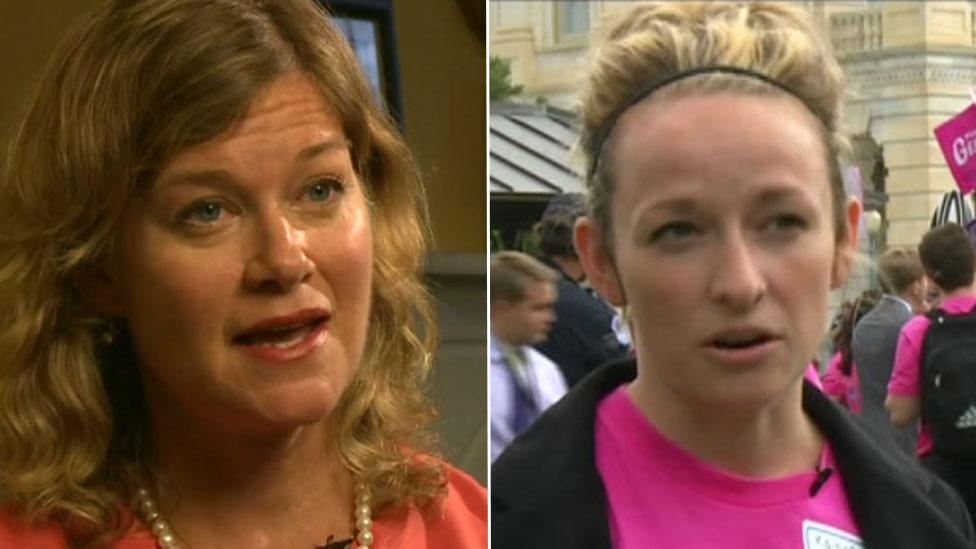Trump's order on abortion policy: What does it mean?
- Published
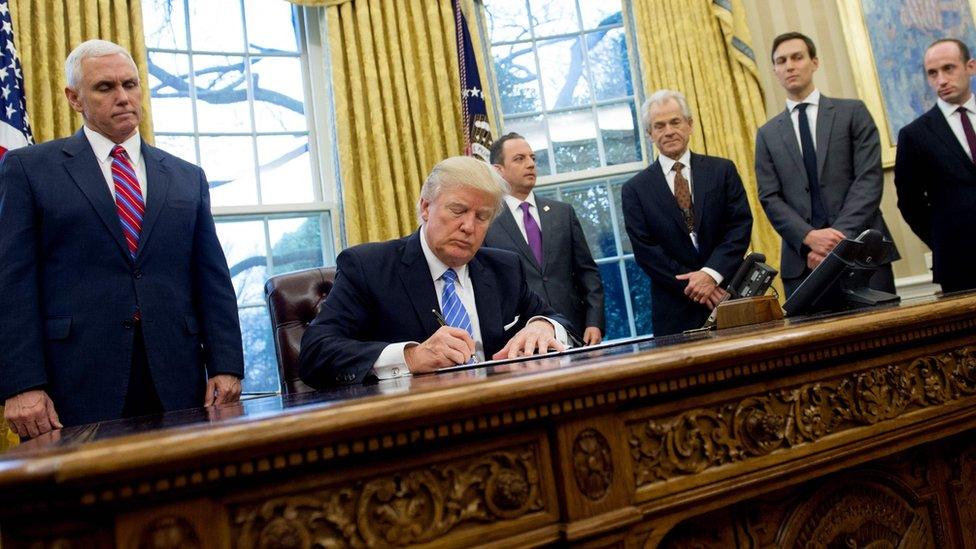
US President Donald Trump signing the abortion-related order in the Oval Office
A group of men standing around a desk: it is not the typical image that goes viral online.
The photograph in question was taken on US President Donald Trump's first day in the Oval Office on Monday, when he signed a ban on federal money going to international groups that perform or provide information on abortions.
"Men making decisions about women's bodies" was a much-repeated phrase on Twitter, as it was shared hundreds of thousands of times, including by author JK Rowling.


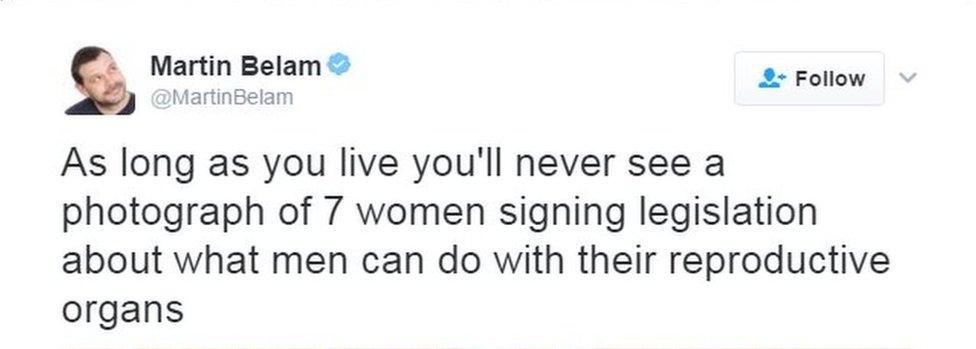
The concern over lack of women at the table comes as Mr Trump's cabinet attracts attention for the high proportion of white, male nominations., external
And while some people welcomed the move on abortion, others on social media expressed alarm and confusion over what its impact could be.
Viral images and headlines do not always tell the whole story. So here is an at-a-glance look at what President Trump's executive order means.
Is this a step towards banning abortion in the US?
Not in itself. This particular executive order is relevant outside of US borders.
The policy requires non-governmental organisations receiving federal funding to agree to "neither perform nor actively promote abortion as a method of family planning in other nations".
This particularly worries women's rights campaigners in developing countries, where funds or facilities are already limited.
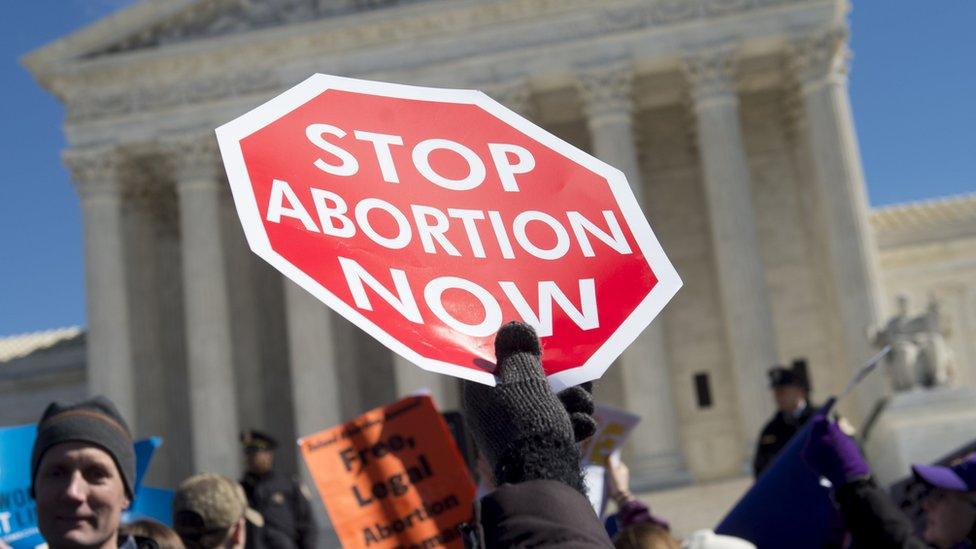
Anti-abortion activists at a rally outside the Supreme Court in Washington last year
Although this policy does not directly affect services in the US, Mr Trump has said he supports an abortion ban at home.
His signing of this order as one of his first executive actions indicates he still sees the issue as a priority.
Is President Trump the first to introduce a ban on foreign funding?
Republicans and Democrats have been involved in a political tug-of-war over the issue for decades.
Republican President Ronald Reagan first created the Mexico City Policy in 1984, stopping funding for international groups which perform or provide information on abortions.
But Democrats later rescinded it under the Clinton administration.
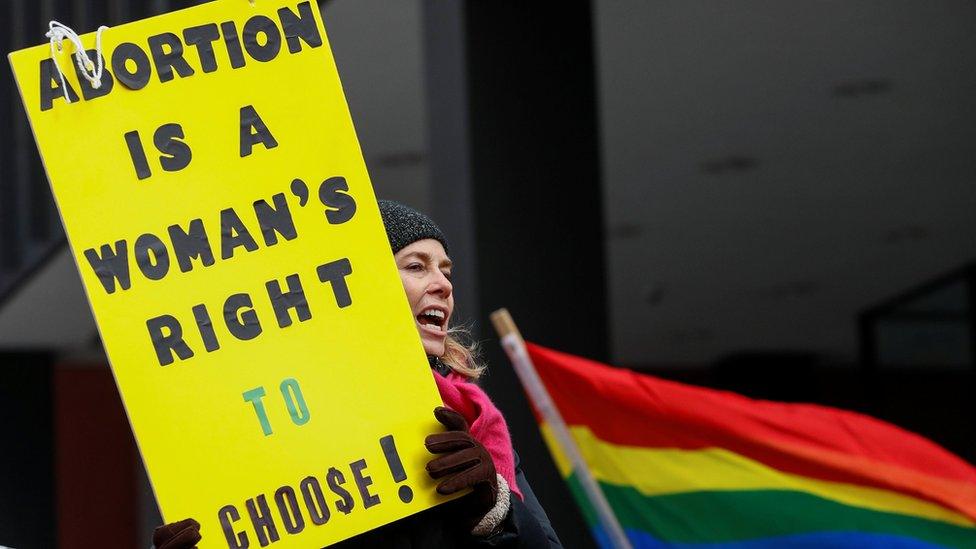
An abortion-rights campaigner in Chicago, protesting after President Trump's election win
It was reinstated when President George W Bush took over in 2001 and overturned again by President Barack Obama in 2009. And now it is back.
What has all this got to do with Mexico City?
The order's official name is the Mexico City Policy because President Reagan first implemented it at a United Nations population conference in Mexico City.
And why is it sometimes nicknamed the 'global gag law'?
Critics of the policy say organisations working around the world feel censored by it because they cannot offer women full advice on family planning.
If they flout the rules, they lose funding which, in some cases, could threaten certain projects or the whole organisation.
However, pro-life groups have welcomed the new administration's swift move.
"President Trump's immediate action to promote respect for all human life, including vulnerable unborn children abroad, as well as conscience rights, sends a strong signal about his administration's pro-life priorities," said Marjorie Dannenfelser, president of US pro-life organisation Susan Anthony List.
Is it unusual to have so many men at the table?
No. Like many governmental decisions, the rules on abortion are often determined by male officials.
Many on social media were quick to point out that the 1973 Roe v. Wade ruling - seen as a landmark case for abortion rights in the US - was delivered by an all-male Supreme Court.
The Roe v Wade decision says abortion is legal until a foetus is viable, typically between 22 and 24 weeks.
What are Mr Trump's views on abortion?
The new US president has previously changed his mind on the issue. He has gone from being pro-choice in 1999 to being against abortion today, although he says he would allow exceptions such as in the case of rape or incest.
On the presidential campaign trail, he said he believed "some form of punishment" should be in place for women who have abortions, if the practice is banned.
Donald Trump shifts again on abortion
But, after strong criticism, he released a statement saying that only the doctor or practitioner should be punished, not the woman.
In an interview with CBS News, Mr Trump said: "The laws are set. And I think we have to leave it that way."
He refused to say whether he believed abortion was murder, but he later conceded that he could not disagree with the statement.
- Published2 April 2016
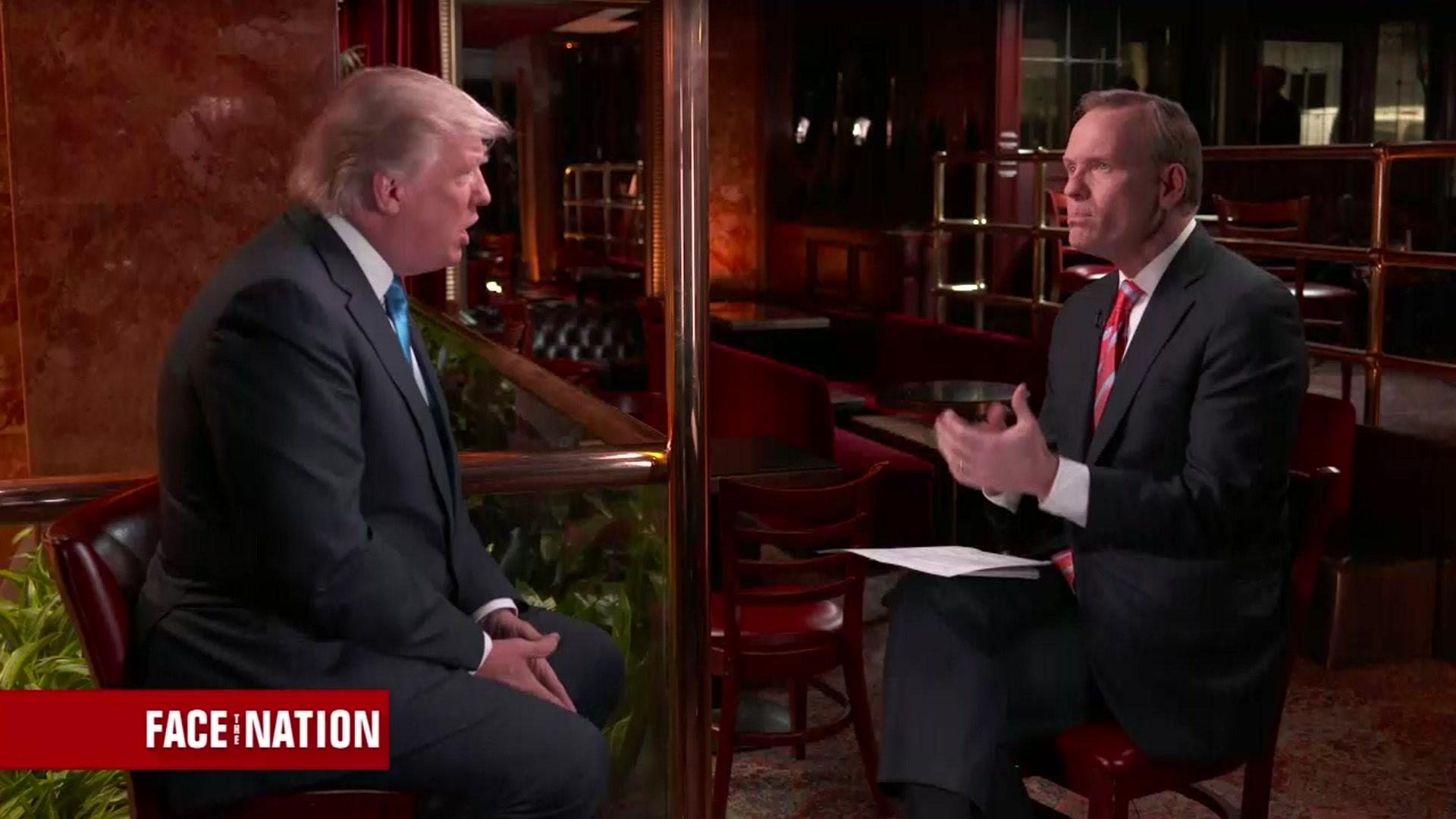
- Published25 October 2015
